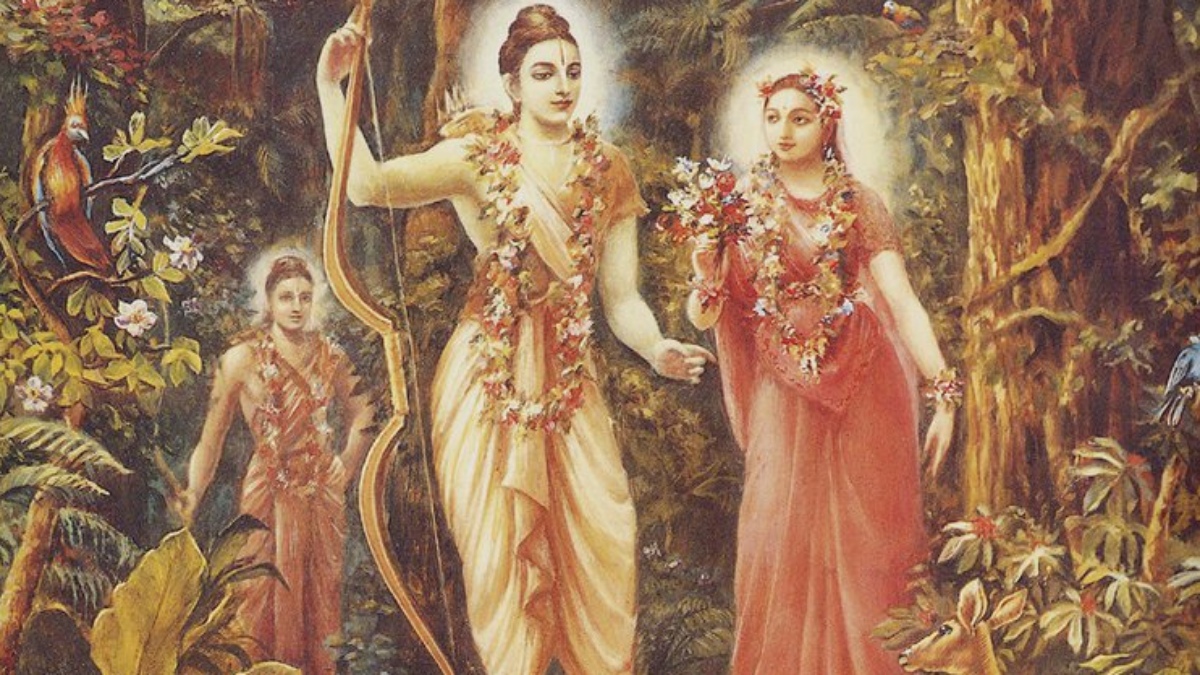


There are a lot of misconceptions about these two words—dharma and religion. They are used very carelessly and therefore can, and do, invoke wrong meanings and even dangerous ideas. A misinterpretation of these words can completely change perceptions. On deep thinking one realises very clearly that any religion is not about God really, it is an institutionalised set of beliefs only meant for human beings to practice. For what? Exactly, this is the question. If these beliefs are meant for the betterment of all human beings, then they should necessarily be the same universally! But we sadly notice that there is something in the very nature of man-made religion that is divisive. A religion excludes all that it is not, while dharma includes every form of life. Noted scholar Badrinath Chaturvedi in his book Dharma, India and the World Order, writes, “All social disorders originate primarily in the minds of men… The real problem is that of conveying a fundamental concept of one culture to another.” And in doing that some loss of meaning always occurs due to differences in languages and cultural beliefs.
The range of ideas that this word dharma represents is not conveyed accurately by any word in English. There is an absence of any intelligible term in English that could in essence cover the entire range of ideas in all the subtle nuances in the gambit of this word Dharma. Any Sanskrit dictionary gives meanings running into pages. Marco Pallis, a scholar on Buddhism, states in his essay on ‘A Buddhist Spectrum’, “The word ‘dharma’ which the Indian traditions have rendered familiar has no really adequate counterpart in the terminologies of the European languages.” This is a huge drawback we face in trying to convey to the Western world the range of nuances this word evokes in the Hindu mind. There is stree dharma, pati dharma, Rajya dharma, putra dharma, Sachiv dharma, Purohit dharma, and oh, the list seems endless. Roughly translated as whatever is the best possible noble duty for the benefit of all that one should indulge in, open to interpretations and modifications according to time, place, person and situations. Notice the pliability and the freedom of choice given to man, the openness of mind and the magnanimity of acceptance. This is dharma. It is not a set of unchangeable, hard and fast set of rules. One can’t paint all with the same brush.
The religions of the world stick to their self-created ideologies, condemning those held by any other belief systems, and try deception, seduction, allurements and even violence to impose their beliefs on others. Some even profess to have a religious sanction for doing so. The concept of dharma is universal and never mandated. It is not given out by somebody as compulsory dictates or prohibitory orders. There is no programming. You live according to your own understood set of values, without imposing the same on anyone. In dharma a high value is placed on respecting the dignity and free will of the human intellect.
Yes, dharmic actions and adharmic actions are based on disciplines and values imposed on oneself. There are boundaries to keep unruly acts in check. Of course, these follow a universal matrix of values where the cardinal rule is: ‘I do not want to get hurt, nor do I want to hurt others.’ There is no indoctrination in dharma, it follows the simple logic of whatever is beneficial to mankind universally. It is open to independent interpretation according to the needs of the hour and the given situation. Unless there is a universal ease of application how can it be open to interpretation? Dharma doesn’t come loaded with software. It doesn’t have any Windows. Almost all religions rest on non-confirmed, non-verifiable beliefs. So, what is the ongoing shooting match about? A fight for that which may or may not be true!
Dharma gives freedom to all, to believe in or discard with impunity what his or her intellect judges as wrong or right, without imposing it on others. It is not a preset glove of values, one size fits all. Whether it is one God or twenty, whether it is a form or formless, man, woman, child, animal, half-man and half-animal, river, hill, plant or tree, stone or wood, dharma should encompass and embrace all ideas of divinity universally. Prayer in any language, by anyone, done in any place, to any form one considers as holy, is acceptable to the universal idea of dharma.
Dharma of anything is its essence or its essential quality without which that thing loses all meaning, in fact ceases to exist as itself. For example, any white translucent cubical crystals could be anything else but not sugar if they do not taste sweet. So, sweetness is the dharma of sugar. Similarly, the essential life force that pervades the entire world of cognitive life in the whole universe is the dharma of all existence, and it is to that divine factor that makes life possible, that we owe obeisance. It may take any form of our man-made fancy, but is in effect that sacred power, that supreme intelligence because of which existence exists, call him Ishwar or Allah, Buddha or Mahaveer, it is the true dharma of all beings.
Prarthna Saran is president, Chinmaya Mission, Delhi.